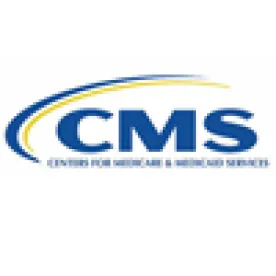Hospitals with off-campus provider-based departments (PBDs) may want to rethink their end of summer vacation plans in order to focus on a recent slate of proposed regulations from the Center for Medicare and Medicaid Services (CMS) that seek to rein in Medicare reimbursement for outpatient hospital services – including at excepted/grandfathered off-campus locations.
On July 25th, CMS issued a proposed rule for the 2019 Outpatient Prospective Payment System (OPPS), making it clear that CMS believes that Section 603 of the Bipartisan Budget Act of 2015 (codified at 42 U.S.C. § 1395l; 81 Fed. Reg. 79562 (Nov. 14, 2016)) (BiBA Section 603) did not go far enough to address some of its concerns related to shifts in settings of care and overutilization in the hospital outpatient settings. As proposed, the CY 2019 change would:
- Revert to CMS’ earlier proposed prohibitions on “expansion of services,” effectively limiting excepted PBDs from seeking higher hospital-based rates for services outside of a defined clinical family of services that were provided at the PBD between November 1, 2014 and November 1, 2015.
- Cap the Medicare OPPS rate for clinic visit services furnished by any off-campus PBD, whether excepted (grandfathered) or non-excepted, to equal the site-specific Physician Fee Schedule (PFS) payment rate. In other words, all outpatient clinic visits would be reimbursed on a site-neutral basis, at equivalent rates to physician offices if furnished in an off-campus location.
At this time, it is unclear whether any of these changes will be finalized. CMS is soliciting comments on this proposal through September 24, 2018.
Separately, on July 12, 2018, CMS published proposed rule CMS-1693-P (83 Fed. Reg. 35704 (July 27, 2018)), under which it proposes to continue the current 40% downward adjuster on non-excepted PBD reimbursement rates, and the reimbursement rates currently applied for partial hospitalization programs (PHP) for the indefinite future. CMS is soliciting comments on its proposal for CY 2019 through September 10, 2018.
Finally, CMS continues to take aim at the use of 340B drugs furnished in hospital off-campus outpatient departments, proposing a dramatic rate reduction for such drugs furnished in non-excepted PBDs, at the rate equivalent to the rate at excepted PBDs, average sales price (ASP) minus 22.5 percent.
Background on Changes to OPPS
BiBA 603, together with its implementing regulations 42 C.F.R. § 416.1 et. seq. issued one year later, caused new, off-campus, non-excepted hospital PBDs to no longer be reimbursed under the OPPS. In other words, the former financial advantage to locations holding provider-based status largely disappeared for new outpatient projects, with payment approximating what would be paid for the service if performed in a physician office. Off-campus PBDs billing under OPPS as of November 2, 2015, were deemed “excepted” for purposes of BiBA 603, and were insulated from rate reductions.
Notwithstanding BiBA 603, CMS remains concerned over the OPPS’ continued high rate of growth, and believes the current payment scheme — rather than patient needs — continues to drive site-of-service decision-making.
Foley Insight on the Changes – We are deeply concerned with this proposal as it seeks to implement so-called site neutral payment reductions in off-campus outpatient departments beyond those Congress intended. If Congress had meant to apply site neutrality to exempted sites, it would have done so itself. But, of course, that is not what Congress did. Instead, Congress established a compromise as to those off-campus PBDs that would be restricted in reimbursement and those that would not. In its wisdom, Congress drew a line in the sand around those that had been billing OPPS prior to November 2, 2015. CMS is proposing to create law, and override the will of Congress, by erasing the benefits of the exempt (grandfathered) locations. If CMS implements this proposal, it will be challenged.
No Budget Neutrality
CMS is proposing to implement its proposed method in a non-budget neutral manner. By statute, adjustments under the OPPS must be made in a budget neutral manner, i.e., so that the estimated amount of expenditures for the year would not vary from the estimated amount had the adjustments had not been made. Arguing that implementing its proposals in a budget neutral manner would not appropriately reduce the overall unnecessary volume of covered PBD services, CMS is taking a convenient position that its proposals refer to a method for controlling increases in the volume of covered PBD services, rather than an adjustment that would be limited by the budget neutrality provisions of the Social Security Act.
Foley Insight on Budget Neutrality – We respectfully disagree with this interpretation. In our view, while this may be a different flavor of rate adjustment implemented by CMS, it is still a rate adjustment. And Congress has spoken that rate adjustments must be made (if at all) on a budget neutral basis.
Site Neutrality – Proposed Limits on Expansion of Services
The proposed rule aims to limit off-campus PBDs’ ability to expand the services they provide. CMS grouped various services together as “clinical families of services” (Table 32 of the proposed rule). As proposed, if an off-campus PBD wants to provide a new service that is not included as part of the “clinical family of services” that it offered – and billed for – during the baseline period from November 1, 2014 through November 1, 2015, then it will be paid for the new service at the lower PFS rate. CMS is accepting public comment on whether a different baseline period, such as three or six months, should be used for off-campus PBDs that began furnishing services and billing after November 1, 2014, or that met the mid-build requirement.
New Reimbursement Proposals
Removing the Off-Site Payment Differential/Capping OPPS Payment for Other Services
As noted above, CMS proposes capping OPPS payments for clinic visit services furnished by both excepted and non-excepted off-campus PBDs at the equivalent site-specific PFS rate (HCPCS code G0463). Although the rule is currently only proposing site-neutrality for clinic visit services, CMS is soliciting comments to help identify other items and services furnished at PBDs that should also receive similar payment reduction.
CMS is accepting comment on other proposals that would further reduce the rates of PBD utilization, including how Medicare might define the terms “unnecessary” and “increase” for services (other than clinic visits) that can be performed in multiple settings of care.
One intriguing question raised by CMS is whether prior authorization should be considered as a method for controlling overutilization of services. This would be a fundamental change to Medicare reimbursement, taking a page from the commercial payer playbook. It may be a useful approach for certain services, particularly high-cost procedures that have high denial rates or uncertain coverage status (such as gender-reassignment surgery). It may also cut down on retroactive medical necessity denials for providers. Other commercial payer business models, like utilization review, are also being considered at CMS. These strategies merit thoughtful consideration.
CY 2017 PFS –Fixing Certain BIBA 603 Rates in Place
Under the CY 2017 PFS, CMS proposes to continue its current approach of allowing non-excepted off-campus PBDs to bill for non-excepted items and services on an institutional claim using a “PN” modifier, with an adjustment percentage of 40%. Originally proposed as an interim solution to address technological challenges in implementing BiBA 603’s rate structure, the relativity adjuster and 40% discounted rate would continue in place as the payment mechanism in CY 2019 and for future years until a viable option comes to fruition.
The proposed rule for CY 2019 would also continue to set the payment rate for partial hospitalization program (PHP) services offered by non-excepted off-campus PBDs at the lower per diem rates applicable to Community Mental Health Centers (CMHCs). PBDs would not be required to enroll as CMHCs for such purpose. CMS is proposing to keep this rate in place for the foreseeable future, until updated data or other considerations indicate that a change to the approach is warranted.
Takeaways
CMS is using OPPS CY 2019 as an opportunity to reduce advantages currently enjoyed by excepted PBDs. This may foreshadow a trend to eliminate payment differentials between exempt and non-exempt off-campus facilities. Many facilities work hard to maintain this status for their off-campus locations. If finalized, the proposals will force providers to rethink how and where they furnish certain items and services.






 />i
/>i

